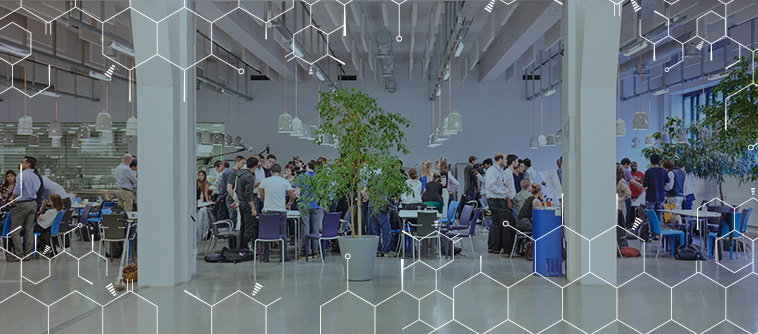
Three teams from IMD’s MBA class recently made it to the finals in the Debiopharm Inartis Challenge, a competition organized to harness innovation to improve the lives of healthcare patients.
The projects the teams presented were the fruit of a week dedicated to innovation in IMD’s MBA program. In April, the 2018 class embarked on a weeklong intensive innovation module with the goal of coming up with a new product or idea that would improve the lives of healthcare patients. During the week, 18 teams explored the processes of creating new ideas, insight-gathering, prototyping and pitching. This year, IMD opened up the challenge to a group of students from ECAL and EPFL to benefit from collaboration between the design, technology and business disciplines.
“I would like to warmly congratulate all of the teams for the work they produced. Special kudos to the team that won the grand prize. The jury was impressed; It must have been very difficult for them to agree on who the winning team should be. The concepts from all three teams were interesting and inspirational,” said IMD Professor Cyril Bouquet, organizer of IMD’s participation in the challenge.
The winning teams
The overall winning team of the challenge was the Self-up/ GrandStand team, which developed an ergonomic cushion, which helps older people or those with reduced mobility stand up from a sitting position. Using springs, it deploys automatically when a person starts to get up. In Europe, 51 million people are 55 or older and in Switzerland 1 million people have limited mobility. The winning team received CHF 25,000 to continue development of the project.
Selected by the jury, who cited the winning project’s esthetic, light weight and convenient design, the team was made up of nine students from ECAL/University of Art and Design Lausanne and its MAS program in Design for Luxury & Craftsmanship, EPFL, the technology-focused university, and IMD business school: Muhammad Atif, Rafael Freixo, Oriane Perryman-Holt, Parth Reddy, Joyce Tsuchiya, Georg Foster, Garance Krengel, Mohamed Jerad and André Cepêda.
The other two finalist teams made up of IMD MBAs were, SecondVein and Levity.
Second vein is an ultraportable pocket size intravenous bag designed to make it easier for children to move around in the hospital.
Levity is a mini-hammock for babies which allows mothers who are in a weakened state, such as in post-operation situations, to breast feed without having to support the weight of the child.
“I’m very proud of the work the class did in this challenge. I am confident that they understand the innovation process much better now and will be able to manage it in their future efforts,” said Seán Meehan, Dean of the MBA class
Strong collaboration among leading institutions
“None of this would have been possible without the complete dedication of the very special team of people who believed in this joint journey at ECAL, EPFL and the Inartis foundation. Many thanks also to IMD’s fantastic team of faculty, coaches and innovation or health care experts in the broader ecosystem whose tremendous input, support and guidance in various phases of the innovation process provided the momentum that propelled the teams forward. We are all very happy and proud of what was accomplished,” said Cyril Bouquet.
The three finalist teams were made up of IMD MBA’s and participants from ECAL and EPFL: Muhammad Atif, André Cepêda, Alberto Martinez Camus, Lauren Hasek, Handson Chiweshenga, Rodrigo Freire, Rafael Freixo, Dimitrios Karampatakis, Shingo Kawano, Ilgin Kendigelen, Pedro Kniphoff, Oriane Perryman-Holt, Korbchai Pitrasatorn, Piyush Rawat, Parth Reddy, David Ruiz, Praveen Sam, Søren Storck, Joyce Tsuchiya, Rafael Zarpao, Georg Foster (ECAL), Garance Krengel (ECAL), Nanasari Tamura (ECAL), Jerome Laurendeau-Rivard (ECAL), Mohamed Jerad (EPFL), and with the help of Matthieu Girel (ECAL BA Industrial Design graduate).
Find out more about IMD’s MBA program.


